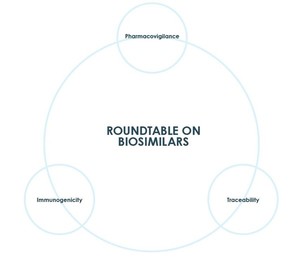The European Crohn’s and Colitis Organization (ECCO) has published results of a consensus meeting held on 15 October 2016 in Vienna, Austria in which they support switching from reference infliximab to biosimilar infliximab [1].
The meeting, which included specialists in inflammatory bowel disease (IBD), concluded that ‘based on the current regulatory guidance form the European Medicines Agency (EMA) and the evidence about efficacy and safety of biosimilars in IBD patients’, ECCO supports the following statements:
- Biosimilarity is more sensitively characterized by performing suitable in vitro assays than clinical studies.
- Clinical studies of equivalence in the most sensitive indication can provide the basis for extrapolation. Therefore, data for the usage of biosimilars in IBD can be extrapolated from another sensitive indication.
- When a biosimilar product is registered in the European Union (EU), it is considered to be as efficacious as the reference product when used in accordance with the information provided in the Summary of Product Characteristics.
- Demonstration of safety of biosimilars requires large observational studies with long-term follow-up in IBD patients. This should be supplemented by registries supported by all involved stakeholders [manufacturer, healthcare professionals and patients associations].
- Adverse events and loss of response due to immunogenicity to a biological cannot be expected to be overcome with a biosimilar of the same molecule.
- As for all biologicals, traceability should be based on a robust pharmacovigilance system and the manufacturing risk management plan.
- Switching from the originator to a biosimilar in patients with IBD is acceptable. Studies of switching can provide valuable evidence for safety and efficacy. Scientific and clinical evidence is lacking regarding reverse switching, multiple switching, and cross-switching among biosimilars in IBD patients
- Switching from originator to a biosimilar should be performed following appropriate discussion between physicians, nurses, pharmacists and patients, and according to national recommendation. The IBD nurse can play a key role in communicating the importance and equivalence of biosimilar therapy.
The statement marks a significant shift in attitude from the previous ECCO position statement, which advised that switching from an originator biological to a biosimilar was inappropriate and called for more data on the safety and benefit of biosimilars in general [2, 3]. A previous ECCO survey had also highlighted a lack of confidence in biosimilars and the need for continued education [4].
Related articles
European paediatricians advocate biosimilar trials in children with IBD
Extrapolation of biosimilar infliximab indications to inflammatory bowel disease
References
1. Danese S. ECCO position statement on the use of biosimilars for inflammatory bowel disease - an update. J Crohns Colitis. 2017;11(1):26-34.
2. GaBI Online - Generics and Biosimilars Initiative. ECCO survey highlights lack of confidence in biosimilars mAbs [www.gabionline.net]. Mol, Belgium: Pro Pharma Communications International; [cited 2017 Jan 27]. Available from: www.gabionline.net/Biosimilars/Research/ECCO-survey-highlights-lack-of-confidence-in-biosimilar-mAbs
3. ECCO 2013 survey highlights lack of confidence in biosimilars. Generics and Biosimilars Initiative Journal (GaBI Journal). 2014;3(3):154. doi:10.5639/gabij.2014.0303.034
4. GaBI Online - Generics and Biosimilars Initiative. ECCO position statement on biosimilars [www.gabionline.net]. Mol, Belgium: Pro Pharma Communications International; [cited 2017 Jan 27]. Available from: www.gabionline.net/Biosimilars/General/ECCO-position-statement-on-biosimilars
Permission granted to reproduce for personal and non-commercial use only. All other reproduction, copy or reprinting of all or part of any ‘Content’ found on this website is strictly prohibited without the prior consent of the publisher. Contact the publisher to obtain permission before redistributing.
Copyright – Unless otherwise stated all contents of this website are © 2017 Pro Pharma Communications International. All Rights Reserved.








 0
0











Post your comment